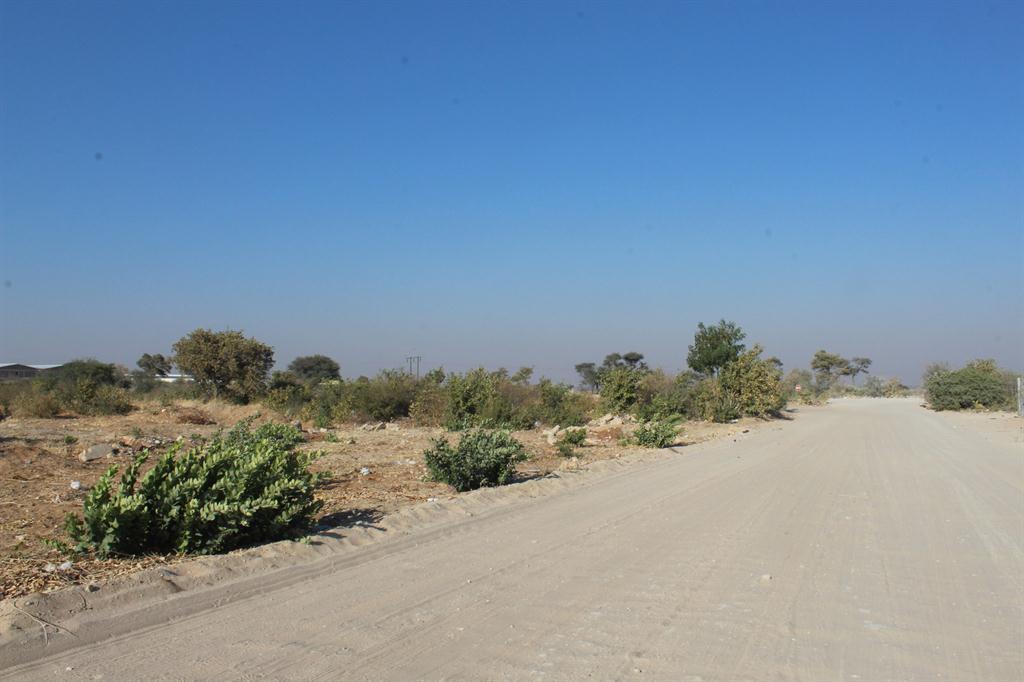Rundu revokes plots worth N$52 million
KENYA KAMBOWE
The Rundu town council says it has been left with no other option but to revoke the allocation of more than 80 industrial and business plots.
According to an advertisement placed in daily newspapers, the plots are situated in Rundu’s extensions 3, 4, 8 and 29 and are valued at over N$52 million.
Council spokesperson Benjamin Makayi told Namibian Sun that some of the plots were allocated as far back as 2002, but the occupants did not pay a cent.
Makayi acknowledged that that a number of the plots are not yet connected to municipal services, especially those in Extension 8.
All the plots in Extension 4 were provided with municipal services, yet the occupants failed to honour their purchase agreements.
“The erven were planned and registered, therefore such activities require financial input costs that were borne by council,” Makayi said.
“Most of the erven are not connected to municipal services, for example water, roads, sewer and electricity, particularly those in Rundu Extension 8 but Rundu Extension 4 is serviced.”
The plots are being sold at N$100 per square metre, which locals feel is too much.
One of those objecting to the price of land is town councillor Reginald Ndara, who represents the Rundu Concerned Citizens Association (RCCA).
Ndara tried to table a motion on the issue on 21 June, but it was not seconded.
Ndara argues that the council cannot sell the plots at such a high price, as small and medium enterprises (SMEs) won’t be able to afford them.
“The prices are exorbitant and some citizens, especially the micro, small and medium enterprises and the upcoming business persons, will never afford these prices. The fact that the Rundu town council is deeply in debt does not give the town the power to come up with unaffordable prices on land,” Ndara argues.
When asked how the council had arrived at the price of N$100 per square metre, Makayi said the council makes use of gazetted tariffs which are reviewed almost every year.
He further cited the cost of surveying and registering land, which has to be recouped.
“There are input costs involved in planning and registering the land and such costs were borne by the council and should be recovered from the proceeds of selling the erven. It is therefore necessary to recover costs incurred from conducting environmental impact assessments, costs for township layout designs, costs to the Namibia Planning Advisory Board and Township Board fees, consultant fees and land surveying costs,” Makayi said.
The Rundu town council is faced with a number of financial challenges, such as its N$50 million water debt to NamWater.
This situation resulted in NamWater cutting off the town’s water, leaving the over 80 000 residents without water for weeks until the line ministry intervened.
Due to a lack of funds, the council is also unable to implement its waste management system, resulting in the town’s open spaces becoming dumping sites.
The Rundu town council says it has been left with no other option but to revoke the allocation of more than 80 industrial and business plots.
According to an advertisement placed in daily newspapers, the plots are situated in Rundu’s extensions 3, 4, 8 and 29 and are valued at over N$52 million.
Council spokesperson Benjamin Makayi told Namibian Sun that some of the plots were allocated as far back as 2002, but the occupants did not pay a cent.
Makayi acknowledged that that a number of the plots are not yet connected to municipal services, especially those in Extension 8.
All the plots in Extension 4 were provided with municipal services, yet the occupants failed to honour their purchase agreements.
“The erven were planned and registered, therefore such activities require financial input costs that were borne by council,” Makayi said.
“Most of the erven are not connected to municipal services, for example water, roads, sewer and electricity, particularly those in Rundu Extension 8 but Rundu Extension 4 is serviced.”
The plots are being sold at N$100 per square metre, which locals feel is too much.
One of those objecting to the price of land is town councillor Reginald Ndara, who represents the Rundu Concerned Citizens Association (RCCA).
Ndara tried to table a motion on the issue on 21 June, but it was not seconded.
Ndara argues that the council cannot sell the plots at such a high price, as small and medium enterprises (SMEs) won’t be able to afford them.
“The prices are exorbitant and some citizens, especially the micro, small and medium enterprises and the upcoming business persons, will never afford these prices. The fact that the Rundu town council is deeply in debt does not give the town the power to come up with unaffordable prices on land,” Ndara argues.
When asked how the council had arrived at the price of N$100 per square metre, Makayi said the council makes use of gazetted tariffs which are reviewed almost every year.
He further cited the cost of surveying and registering land, which has to be recouped.
“There are input costs involved in planning and registering the land and such costs were borne by the council and should be recovered from the proceeds of selling the erven. It is therefore necessary to recover costs incurred from conducting environmental impact assessments, costs for township layout designs, costs to the Namibia Planning Advisory Board and Township Board fees, consultant fees and land surveying costs,” Makayi said.
The Rundu town council is faced with a number of financial challenges, such as its N$50 million water debt to NamWater.
This situation resulted in NamWater cutting off the town’s water, leaving the over 80 000 residents without water for weeks until the line ministry intervened.
Due to a lack of funds, the council is also unable to implement its waste management system, resulting in the town’s open spaces becoming dumping sites.




Comments
Namibian Sun
No comments have been left on this article